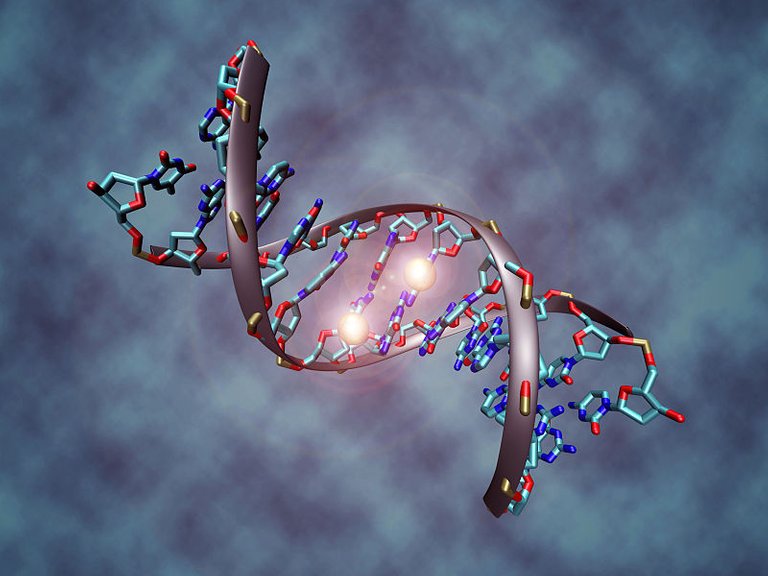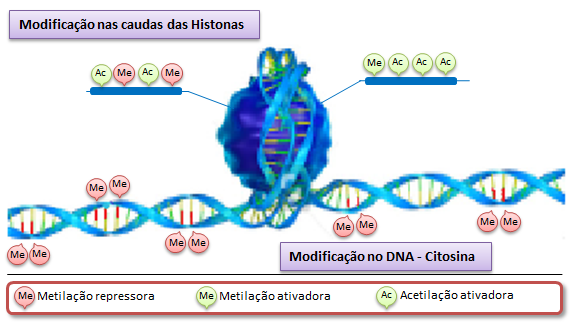Epigenetics Explained
Several branches of science have broadened our horizons to understand better how a couple of things work, in our bodies, our environments, and beyond what we can ordinarily comprehend. Scientific studies argue that certain ways we behave and sometimes the environment we find ourselves in can affect the way our genes function. Now, this might sound a little puzzling. We can say it is mind-boggling to think that our environment can interfere with our genes. However, epigenetics explains this.

What Is Epigenetics?
Epigenetics is an emerging aspect of science that is poised to comprehensively explain how human behavior and their environments can trigger changes in their bodies that can interfere with the functions and activities of their genes. A gene is the fundamental physical and functional unit of heredity or inheritance, that is in control of the transmission and exhibition of certain traits. Humans could have genes ranging from 20,000 to 25,000 in numbers.
Genes play a very essential role in determining how we do a lot of things. Our physical traits – how we look, and several other observable characteristics are powered by our genes. Many of the traits exhibited by individuals were passed on from generations before them by genes.
Every human being has two copies of each gene, one transferred to them from each parent. Genes are of the same identity in every person. However, only a few of these genetic makeups are a little different in some people. Alleles are structures of the exact gene with slight variations in their cycle of DNA bases. These slight distinctions contribute largely to every person's different physical characteristics.
Epigenetics examines the behaviors of humans and some environmental impact with respect to the way genes work. Epigenetic changes are a lot different from genetic changes. Unlike the latter, epigenetic changes can be reversed and do not alter or have any effect on one's DNA sequence. However, it is noteworthy that epigenetic changes can alter the way the human body interprets a DNA sequence. According to this field of study, our environment and behaviors such as daily activities and exercises can trigger epigenetic changes. This makes clear the relationship between our genes and our behaviors and environment.
How Does Epigenetics Work?
There are certain ways in which epigenetic changes could affect our gene functions. First, it begins by underscoring our behavior and environment and then relating it to our genes, before altering their functions. The different types of epigenetic changes include:
DNA Methylation
This type of change simply functions by including a novel chemical group to DNA. This group is commonly included in certain areas of the DNA, where it prevents and obstructs the proteins attached to DNA from interpreting the gene. This chemical group can be dissolved through a process typically known as demethylation. While methylation makes it impossible for proteins to read genes, demethylation works in the reverse.
Histone Modification
DNA wraps are typically seen wrapped around specific proteins known as histones. When the DNA is wrapped too tightly around histones, the proteins that read and interpret the genes do not have the access to do so. Some genes are wrapped around histones and are automatically inactive then while some that are not wrapped around histones are active and accessible to be read by the proteins. Chemical groups can be introduced to histones or removed from them in a bid to change the status of the gene, whether wrapped by DNA or unwrapped.
Non-coding RNA
Your DNA is said to be an instrument used as instructions for bringing about coding and non-coding RNA. Coding RNA is used to give rise to proteins. Non-coding RNA makes it possible to regulate gene expression by attaching to coding RNA, in line with specific proteins to break down the coding RNA. Once this is done, the coding RNA can no longer be used to give rise to proteins. It is also possible for Non-coding RNA to create proteins for the sole purpose of the modification of histones to regularize gene functions.
HOW DOES OUR EPIGENETICS CHANGE?
Changes can occur in our epigenetics over time as a result of age, both as a part of basic bodily development and functions, and also how we age in response to the environment and behaviors. There are ways by which epigenetic changes can occur including:
Epigenetics As Growth And Development Occurs
Epigenetic alterations can occur right before an individual is born. Every cell in the body might look a lot alike but they act in different ways. As growth occurs with bodily developments, epigenetics plays a significant role in determining the particular function of every cell in the body.
For instance, the cells in the muscle and nerve cells look a lot alike, with the same DNA but they have different functions. While the cells in the muscles help and support the body's capability to change positions, a nerve cell carries information from one part to other parts of the body. Epigenetics helps muscle cells turn on genes for proteins to aid its function and turn off the genes for the nerve cells to function seamlessly.
Epigenetics and Temporary Changes
Not every epigenetic change is irreversible. Some changes are not permanent and can be added or taken out in response to behavioral changes or changes in the environment.
Epigenetic Changes Throughout Life
At birth, one's epigenetics is not the same as epigenetics during childhood, adolescence, or adulthood. Epigenetic changes occur throughout one's life. According to a scientific study done to experiment with the epigenetic changes at different stages of life, it was observed that DNA methylation declines as a person gets older.

How Does Epigenetics Affect Our Health?
Epigenetic changes can have a lot of effects on our health in different ways. When infection-causing germs attack us, they alter our epigenetics to weaken the immune system. This helps the germs thrive since a weakened immune system can not fight them.
While we might know that certain genetic mutations can cause cancer, we might not know that epigenetic changes could increase one's risk of getting cancer. And even in pregnancy, certain factors including nutrition and environment can affect a child's epigenetics, causing changes that could last a lifetime and even make the child vulnerable to different diseases.
Thank you all for reading.
References
- https://www.whatisepigenetics.com/fundamentals/
- https://medlineplus.gov/genetics/understanding/howgeneswork/epigenome/
- https://www.ncbi.nlm.nih.gov/pmc/articles/PMC2791696/
- https://www.uptodate.com/contents/principles-of-epigenetics
- https://www.sciencedirect.com/science/article/pii/B9780128009574000205
Thanks for your contribution to the STEMsocial community. Feel free to join us on discord to get to know the rest of us!
Please consider supporting our funding proposal, approving our witness (@stem.witness) or delegating to the @stemsocial account (for some ROI).
Please consider using the STEMsocial app app and including @stemsocial as a beneficiary to get a stronger support.
Congratulations @hadji! You have completed the following achievement on the Hive blockchain and have been rewarded with new badge(s) :
Your next target is to reach 34000 upvotes.
Your next target is to reach 35000 upvotes.
You can view your badges on your board and compare yourself to others in the Ranking
If you no longer want to receive notifications, reply to this comment with the word
STOPCheck out the last post from @hivebuzz:
Support the HiveBuzz project. Vote for our proposal!
Hello @hadji;
I am not a scientist, but I have always related science to everyday living. So, when I read about epigenetics, I see its relevance to social policy. The epigenetics of prenatal care, and the epigenetics of childhood. As you explain, some of the changes provoked by environment last a lifetime. And, there is research that suggests the changes may be passed on to subsequent generations. With an understanding of this, it's hard to look at vast disparities in childhood environments and not think about what the disparities cost individuals, groups, and even society as a whole. I think the best argument for investing in child care (health, nutrition, education) can be made by reference to epigenetics. This is not something that should be left to politicians, who are usually looking for an opportunity to advance their own positions. I think this is an issue that should call upon collaboration between geneticists, social scientists, doctors, teachers.
This is probably not the sort of comment you expected to receive in response to your article. I hope my train of thought makes some kind of logical sense to you. You are, after all, a scientist...one of the people who can make a difference.
Thanks for a great article.